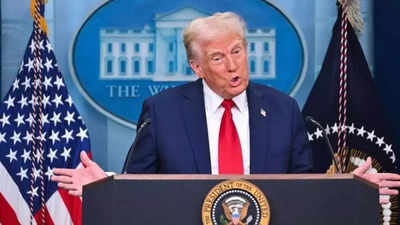
During a recent executive order signing at Mar-a-Lago, President Trump questioned the rationale behind allocating such funds to India, emphasizing the country's substantial financial resources and high tariffs imposed on U.S. goods. He stated, "Why are we giving $21 million to India? They have a lot more money. They are one of the highest taxing countries in the world in terms of us; we can hardly get in there because their tariffs are so high." Trump further noted his respect for India and its Prime Minister but questioned the necessity of the aid, especially when domestic voter turnout initiatives could benefit from such funding.
The Department of Government Efficiency, established to scrutinize and optimize federal expenditures, recently published a list of canceled projects. Among these were $21 million earmarked for boosting voter participation in India, $29 million intended to strengthen the political landscape in Bangladesh, $20 million for promoting fiscal federalism in Nepal, and $47 million aimed at improving learning outcomes across Asia. Elon Musk, leading DOGE, has been vocal about reassessing foreign aid allocations, emphasizing the need for fiscal responsibility and ensuring that U.S. taxpayer dollars are utilized effectively.
The revelation of the $21 million aid to India's Election Commission has sparked discussions about the appropriateness of such expenditures. Critics argue that India, being one of the world's largest democracies with a robust electoral system, may not require external financial assistance for voter turnout. Additionally, concerns have been raised about transparency and the actual impact of such funds on India's electoral processes.
In response to the cancellation, various stakeholders have weighed in. Some U.S. policymakers support the move, suggesting that domestic issues should take precedence over international aid, especially when the recipient nation possesses significant financial capabilities. Conversely, proponents of foreign aid caution that such abrupt withdrawals could affect diplomatic relations and undermine collaborative efforts in promoting democratic values globally.
Elon Musk's leadership of DOGE has introduced a business-oriented approach to government spending, focusing on return on investment and efficiency. This perspective has led to a comprehensive review of various aid programs, with several being scaled back or eliminated based on their perceived effectiveness and necessity.
The Indian government has yet to issue an official statement regarding the aid cancellation. However, political analysts suggest that while the financial impact on India's electoral system may be minimal, the diplomatic implications could be more significant. The decision may prompt discussions between the two nations about the future of such aid and the broader context of U.S.-India relations.
